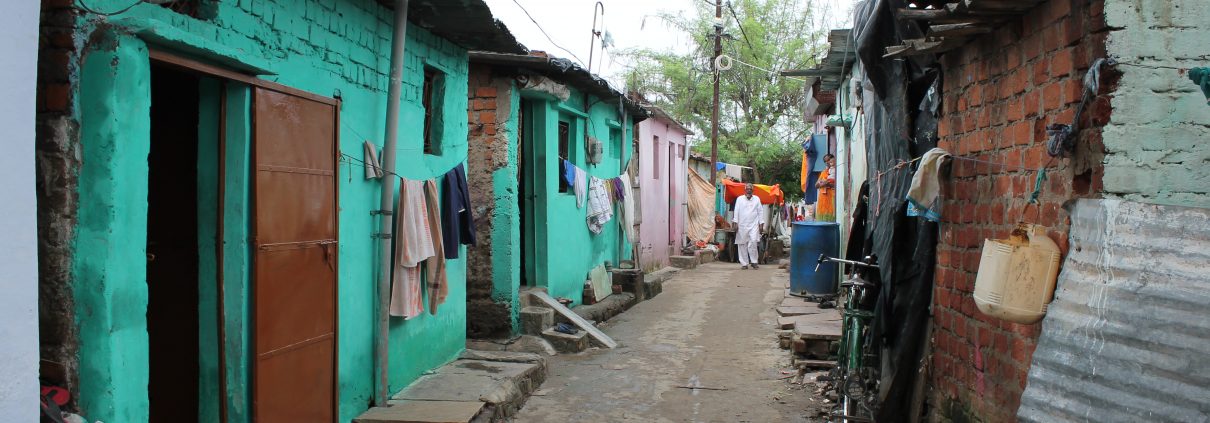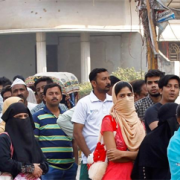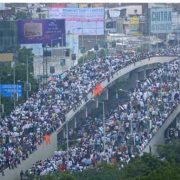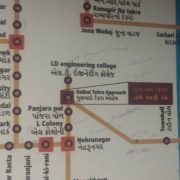An Outsider’s Field Observations: Bhopal, Bureaucracy, and Community Outreach
By Cally Hardy, MURP ‘16
As part of my internship at the Centre for Urban Equity this summer, I had the opportunity to participate in a week-long fieldwork trip to one of our case study cities: Bhopal, the capital of Madhya Pradesh.
As this was essentially the precursor trip to a more intensive primary data gathering mission that my research team will undertake once the monsoon season has ended, much of our trip was a blur of bureaucratic meetings with government officials and representatives from UN Women. And of course, the meetings were conducted mainly in Hindi, mind you. Our mission was to gather government data on things like service coverage, budget allocations, and development plans that we could use to assess the gender inclusiveness of the city’s urban development programs and policies. This task was nowhere near as simple as it sounds. Since things are done at a whole different pace in India, one cannot simply file a public records request or find planning documents online.
While I did get the chance to pick up a few Hindi words, the meetings started to get a bit dull, and you can only drink so much chai and nod along with a meeting you can’t understand for so long. So you can understand why, when I learned that on our last day we would be doing something a bit different, I got quite excited.
Our last day, we finally got the chance to meet up with a local NGO, who introduced us to the local leadership at two different slum settlements in the city. Since our gender budgeting project is most interested in the perspectives of women from more vulnerable or marginalized positions, we were hoping to use their connections to help us conduct our primary surveys in some settlements throughout the city.
This being my first ever visit to a slum, I was expecting a somewhat jarring experience. This happened, just not quite in the way that I expected.
The NGO which organized the introductions is quite involved in community organizing in several of the slums in Bhopal. The first slum we visited, Shanti Nagar, was shockingly (to me) clean and well-cared for. We sat for a meeting at the home of one of the community leaders, where we got to hear all about how much they have accomplished, and how they are a “model slum.” We saw a similar scene at the second slum.
What was the most glaring about both situations was the gender dynamics. At the first settlement, no women were even present at the meeting, except the community leader’s wife, who only spoke to offer us water. At the second settlement, one man did all the talking. That is until a group of local women filtered into his home, sat in a huddle on the floor, and interrupted the man to begin voicing their complaints about a new water pump that didn’t reflect what the community wanted. The women were hurriedly shushed and ushered out of his house.
What became powerfully clear to me through these brief encounters is that if we want to understand what is actually happening in the communities, and what the women need, we cannot simply rely on our contacts with local organizations to lead the way. This is challenging, because as outsiders it will be much more difficult to get honest answers to surveys and enter people’s homes if we do not enter the situation through a trusted source. Really the only way to accomplish what we’re after is to establish deeply rooted systems of trust in the communities. And for a project encompassing two different cities over a short time frame, this is simply not possible.
I think this is at the heart of what makes planning so difficult. Pretty much all planning relies on understanding what communities actually need. But being willing and open to hearing these needs is only half of the task. Before planners and researchers can even get close to that point, a lot of work must be put towards developing community trust. This is a fact that I’ve known since long before I decided to become a planner, but until know I hadn’t experienced just how difficult this is firsthand.










